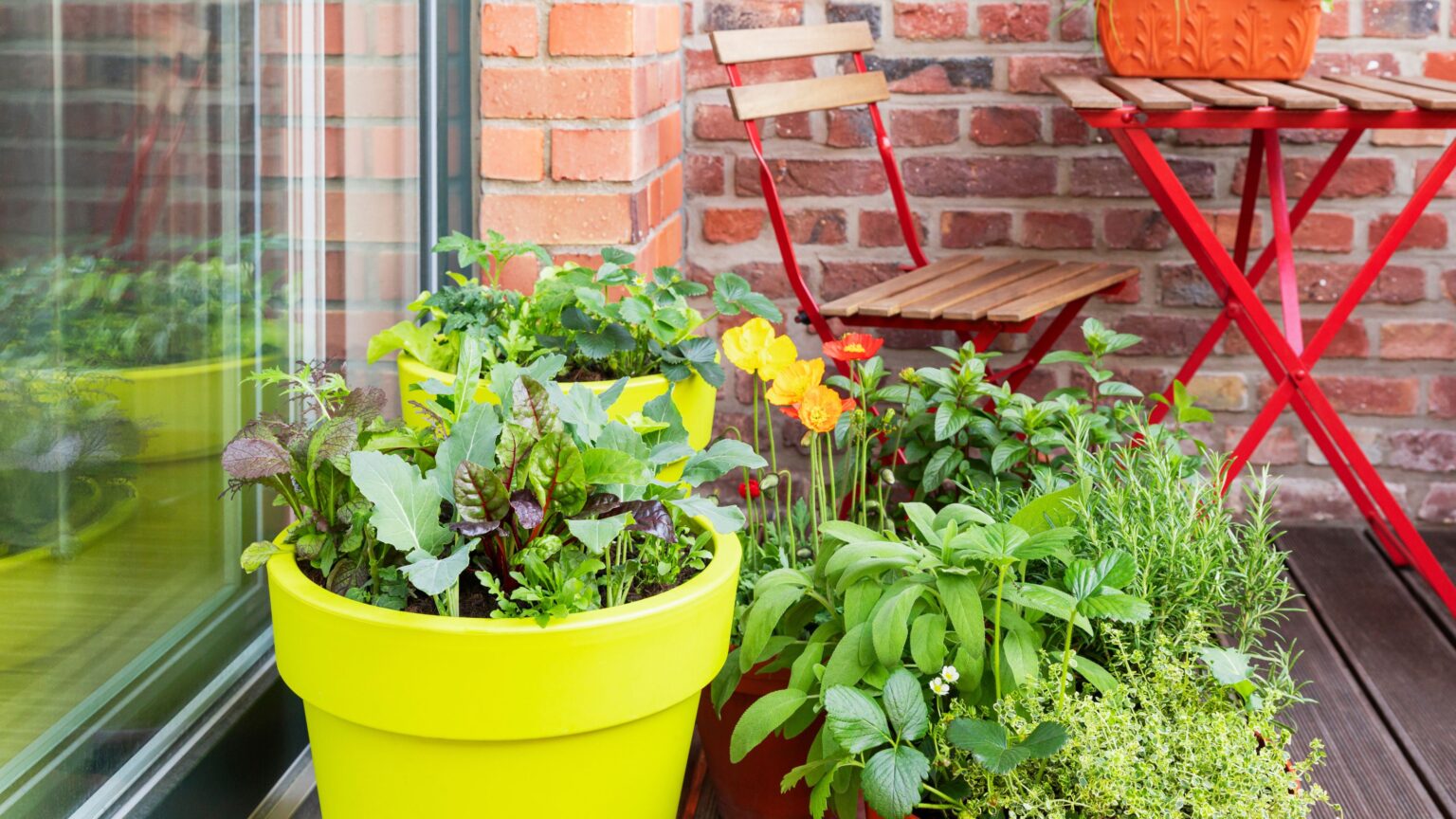Planning this year’s herb garden? There are a few herbs you should plant together to make plant care as simple as possible.
Some of the best companion planting ideas involve herbs, and pairing or grouping them up will make your life a lot easier when tending to your herb garden, because they often share similar growing requirements, and some will even work to protect each other from pests.
In the spirit of low-maintenance gardening, here’s a list of herbs you should plant together this year.
1. Basil and parsley
Basil and parsley are two of the most popular herbs gardeners choose to grow at home, and because they have similar needs, they’re a shining example of herbs you should plant together.
‘Basil and parsley are a good combination because they’re low maintenance and require little space,’ says Morris. ‘Both prefer moist soil and plenty of sunshine, so even a windowsill will do.’
You can learn how to grow basil indoors or out, and if you follow the parsley growing tips of experts like Monty Don, you’ll enjoy a successful miniature herb garden.
Where to buy basil and parsley:
2. Rosemary, thyme and sage
The best Mediterranean garden ideas contain herbs like rosemary, sage and thyme, and according to LBS Horticulture’s gardening expert, Graham Smith MCIHort, they’re a brilliant combination.
‘Rosemary, thyme and sage are all Mediterranean herbs, which means that they require similar planting conditions,’ he explains. ‘These herbs thrive in warm, dry conditions, so they should be placed in a sunny location with well-draining soil.’
Where to buy rosemary, thyme and sage:
3. Mint and lemon balm
Both mint and lemon balm are fast growers, which means gardeners often choose to grow mint in pots instead of the ground, and lemon balm, too. If you do want to dedicate a whole pot or bed to herbs, the similarities between these two make them a great pairing.
‘Mint and lemon balm are both vigorous growers and will soon take over a garden bed,’ says Morris. ‘When grown in containers, though, they manage to mingle perfectly, especially in slightly moist soil.’
Where to buy mint and lemon balm:
4. Parsley and chives
Parsley and chives are another standout combination if you’re on the hunt for herbs you should plant together. They’re an excellent example of companion planting and how two plants can work together to naturally repel garden plant pests.
‘Parsley and chives make good companion herbs as they have similar growing needs, which means they can be easily grown next to each other,’ explains Graham. ‘In addition, parsley can protect chives from pests, as parsley flowers have been found to repel onion maggots that commonly infect and kill chive plants.’
It’s a win-win!
Where to buy parsley and chives:
5. Thyme and oregano
Like rosemary, thyme and sage, oregano and thyme’s Mediterranean roots make them the ideal pairing for a herb garden.
‘Thyme and oregano will grow in the same conditions and are both extremely drought-tolerant plants,’ says Morris. ‘They’re the perfect combination for dry gardens.’
If you’re keen to plan ahead of the hot weather, learning how to grow thyme and oregano could be just the thing your garden needs to flourish all summer.
Where to buy thyme and oregano:
- Suttons: Order in thyme as potted plants.
- Amazon: Start growing oregano this weekend.
6. Lavender and sage
Lavender and sage are another solid pairing with similar growing requirements and pest-repellent plant properties.
‘Lavender and sage grow well together as they both thrive in full sunshine and well-draining soil,’ explains Graham. ‘They make a low-maintenance combination as they are both drought-tolerant plants.
‘They also work well together due to their strong scents that help to offer maximum protection from pests.
And that’s not all. ‘Both lavender and sage attract pollinators, like butterflies and bees, to help them thrive,’ Graham adds. So, they’re a great wildlife garden idea, too.
Where to buy lavender and sage:
What herbs should you not grow together?
Not all herbs can be planted together, and if you want to avoid making any herb garden mistakes, you’ll need to steer clear of a few combinations – namely, those with different growing requirements
‘Companion planting is the concept that one plant helps another, but the converse is allelopathy – when a plant actively discourages others around it,’ explains Jeremy Shaw, assistant head gardener at Raby Castle, Park and Gardens. ‘For example, fennel is allelopathic and subdues other plants around it, so this should be grown on its own.’
Graham from LBS Horticulture also advises against planting mint with other herbs (except for lemon balm, which we mentioned earlier), because it can quickly outcompete other plants for space.
A few herb planting combos can really transform the health of a herb garden and make maintenance a lot easier. Which pairings will you be trying?
Read the full article here

